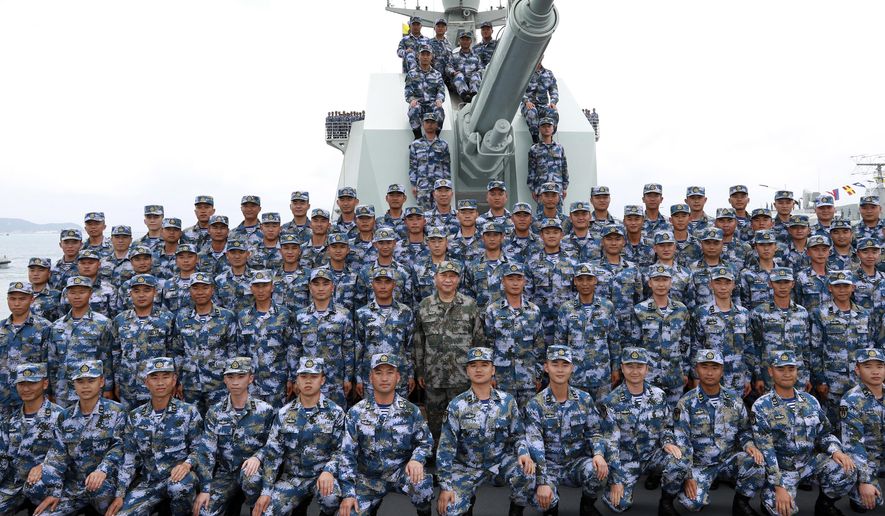Chinese President Xi Jinping stated outright on Wednesday that Beijing’s goal is to absorb Taiwan and that China could use “force” to achieve the goal if necessary.
Mr. Xi’s comments, which are likely to elevate tension over the prospect of Taiwan’s independence from Communist mainland China, came a day after Taiwanese President Tsai Ing-wen vowed the democracy-oriented island will forever resist the sort of reunification being pushed by Beijing.
“Taiwan will never accept ’one country, two systems,’ Ms. Tsai said in a speech Tuesday, referencing China’s long-held claim that it’s open to allowing Taiwan to have its own semi-autonomous government as long as the island’s sovereignty is fully folded under Chinese rule.
Mr. Xi dismissed Ms. Tsai’s remarks Wednesday, delivering his own major speech marking the 40 year anniversary of Beijing’s efforts to improve ties with Taiwan, in which the Chinese president urged the Taiwanese to submit to the reality that they “must and will be” reunited with China.
“We make no promise to abandon the use of force, and retain the option of taking all necessary measures,” Mr. Xi said in a speech to Chinese military officials and others gathered in the Great Hall of the People in Beijing.
According to a New York Times report from the Chinese capital, the section of Mr. Xi’s speech referencing “force” drew rousing applause from the crowd, with the president specifically asserting that it could be used against “intervention by external forces.”
It was Mr. Xi’s first major speech on Taiwan during his seven-year tenure as Chinese president, and he suggested Beijing’s absorption of the island is becoming a growing priority of his ongoing push strengthen China’s position on the global stage.
While Mr. Xi did not explicitly reference the United States or U.S. military support for Taiwan, his comments on force may have been a reference to the prospect of a military clash with America over Taiwan, which China views as a breakaway province.
China and Taiwan have been governed separately since the Chinese civil war of the 1940s when Chiang Kai-shek’s Nationalists lost to Mao Zedong’s Communists. The Nationalists subsequently fled the mainland and established their own government on the island of Taiwan.
While Washington technically does not recognize Taiwanese sovereignty from China, it has a special relationship with the island democracy’s 23 million people and laws in place that require the United States to protect Taiwan from Chinese aggression.
The issue of Taiwan-China relations is heated and complex one on the Taiwanese internal political landscape, with the latest back and forth between Mr. Xi and Ms. Tsai coming amid concern on the island over the prospect of a Chinese intervention of some kind.
In her own speech Tuesday, Ms. Tsai said Taiwanese people treasure their autonomy from China. She then warned city and county officials on the island to exercise caution in any dialogue with officials from the mainland.
Ms. Tsai spoke specifically of major gains that a Beijing-friendly opposition party made in Taiwan’s local elections in November. “The election results absolutely don’t mean Taiwan’s basic public opinion wants us to give up our self-rule,” she said, according to The Associated Press. “They absolutely don’t mean that the Taiwanese people want us to give ground on our autonomy.”
Taiwan’s Nationalist Party, which in recent years has favored closer ties with Beijing, won 15 of 22 major seats in the local elections, reversing an advantage held by Ms. Tsai’s Democratic Progressive Party, which projects a far more guarded view of relations with Beijing.
• Guy Taylor can be reached at gtaylor@washingtontimes.com.




Please read our comment policy before commenting.